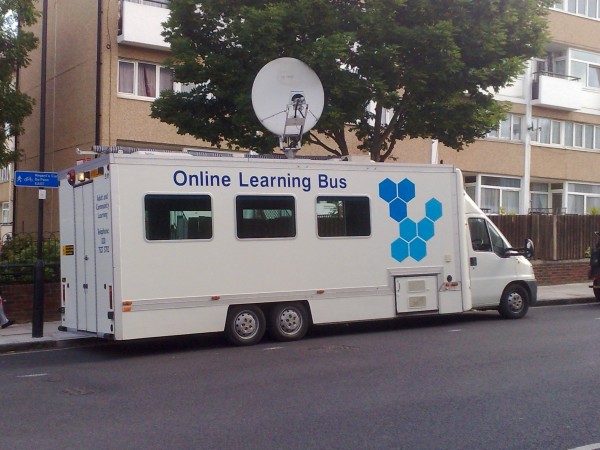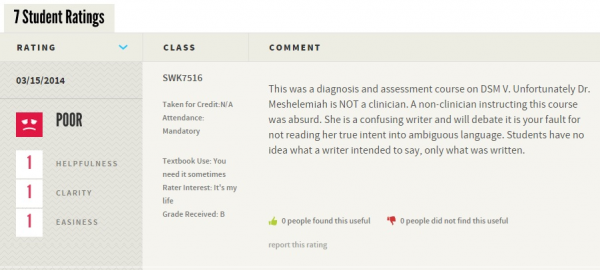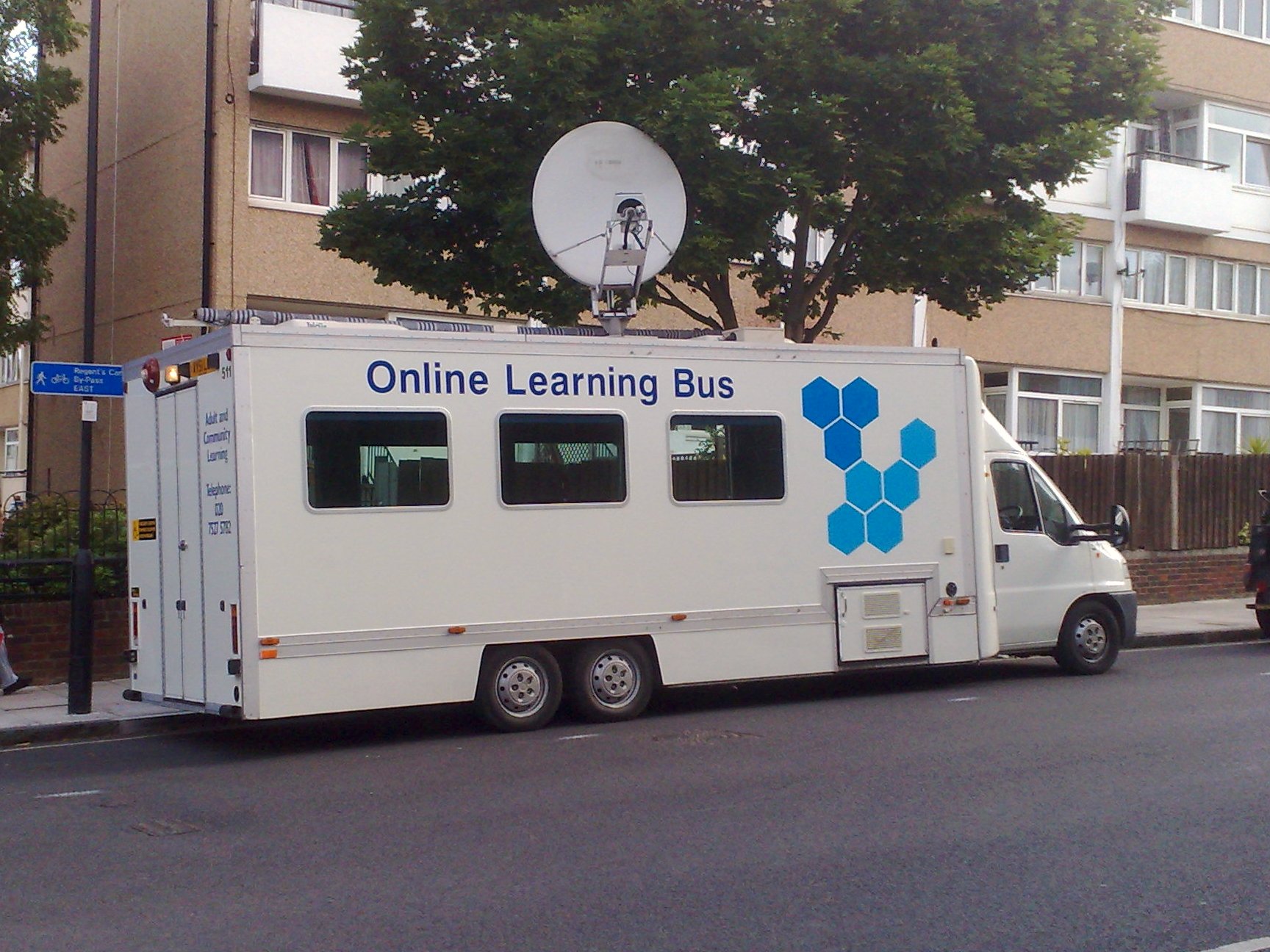
Have you ever wondered what’s taught in university social work classes about sex trafficking? Several sex worker activists recently decided to go forth and find out by taking the online Human Trafficking course offered by Ohio State University’s Social Work program through Coursera, an education platform that partners with universities to offer online classes.
Course grades were based entirely on starting and responding to discussion forum topics and the students’ creation of human trafficking public service announcements. Although Coursera claimed that the class had 30,000 participants, in the end only 97 completed the class and received a certificate. Those who completed the class have not received the certificates yet. As activist Bella Robinson, put it, “God knows what it will say.”
The forum discussion, according to one sex worker student who posted on Facebook, was “about 99.99% about forcing women to stop doing sex work.” There was little or no moderation, with students up or down voting each other’s posts similarly to the way Reddit users do. The instructor, Dr. Jacquelyn Meshelemiah, an associate professor at Ohio State’s College of Social Work, rarely interacted with students and never corrected misinformation or addressed abusive comments.
“I was really disappointed,” said Robinson. “As a sex worker with over 30 years experience in the sex industry, and a researcher/activist, I really thought the class could be an opportunity to help educate people that were interested in reducing trafficking and find[ing] some common ground. Instead I found the majority of those who participated had a hidden agenda, which is to abolish prostitution. I spent a few hours almost every day of the four weeks [of the course] countering every myth and misconception, and making those resource links available for future study.”
“Three weeks into the course, Dr. Meshelemiah had made a grand total of 46 forum [posts], the vast majority of which were simple acknowledgements that a given student has said something and ‘that was a good point.’ This, I remind you, in a course which supposedly has 30,000 students and a very active discussion forum,” said Dr. Thaddeus Gregory Blanchette, an anthropology professor at the Federal University of Rio de Janeiro, Macaé, and a member of Brazil’s federal anti-trafficking committee and sex workers’ rights group.

Abusive comments flourished in this unmoderated learning environment. In one case, a student who was a sex trafficking victim suggested destigmatizing victims: “One attitude that I run into often is that trafficking survivors, sex workers, and even abuse and rape victims are somehow essentially damaged,” she wrote. “It really really bothers me, because as a trafficking survivor I believe one way people can help is to acknowledge that we are whole human beings.”
“To be honest in real life I would [avoid] you,” another student responded. “In my version of life bad actions affect the person.” Although this comment was down-voted, the instructor never responded to it and students continued to make similarly stigmatizing and abusive comments throughout the class.
“Several of the students have claimed that they’d immediately turn anyone they knew was a prostitute into the police ‘for their own good,’” one student commented. “Meshelemiah hasn’t said anything about those claims. How can I safely participate in a class where the students seem to be encouraged to see me as either a criminal or a basket case who needs to be arrested?”
Sex worker activists explored the forums, completing assignments, posting about their experiences with criminalization, and offering links to research about its effects. Ironically, the first person to be banned from the course for offering information was Dr. Blanchette, himself a professor and well-known trafficking researcher. Others were soon also banned. “Well, I made a post listing all the foul things NGOs have done in SE Asia and I was kicked out a few hours later,” one activist said.
After Dr. Blanchette complained, he was reinstated in the course (although none of the other banned students were) and completed it, earning a certificate. “As a professional who is often called upon to render opinions in hiring decisions for positions in the anti-trafficking community in Brazil, it is EXTREMELY alarming to me that there are Brazilian students taking this course, who will then attempt to use its ‘diploma’ as some sort of proof of their adequate level of training on this issue,” said Blanchette.
Dr. Blanchette wasn’t the only student with worries about the perception of the certificate.
“I am concerned that all the people who took the class now have a certificate in human trafficking, and yet they do not seem to know the first thing about it,” said Robinson. “Human trafficking is less likely to be found in the sex industry than other labor sectors. I saw the PSA assignment as a dishonest way of creating awareness of the real problem, which is poverty and the lack of protection of sex workers. I am disappointed to know that Ohio State University has endorsed such an irresponsible narrative.”

I should point out that I only got reinstated after calling Dr. Meshelmiah’s department, long distance, from Brazil, on my own dime. Not many people have the income to use that sort of privilege, or the “Dr” in front of their names to be taken seriously when they complain. I am extremely worried about the ethical implications of OSU running a course like this, with no ethics oversight. OSU, of course, told me it wasn’t their responsibility. “Why is your university’s name associated with it in the banner, then?” I asked. “Why is the teaching and admin staff 100% from your institution?”
Is anyone who is reading this located in central ohio? If so, want to get together and see if there’s anything we can do? Even if it’s something like “Ask a Ho” panel or “what is sex work presentation” at a class at OSU. There is A LOT of work to do here.
In solidarity, Jayne
The dominant discourse on the opposition to trafficking comes from abolitionists. Obviously, their assumption is that closing the market will stop trafficking. Most of the literature is at best veiled with decriminalizing overtones, but in the end they are about abolishing sex for sale. SWOP in Seattle is organizing its own panel and research around strategies to help stop trafficking. Allies or sex worker themselves have to organize space so that our voices can be heard on this subject. I think sex workers themselves are better positioned to stop trafficking by creating a anti-trafficking bias within sex industry. Perhaps sex workers could help fund anti-trafficking initiatives by taxing clients or educating clients (?)